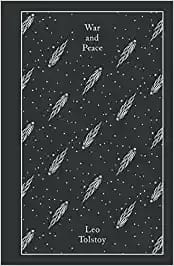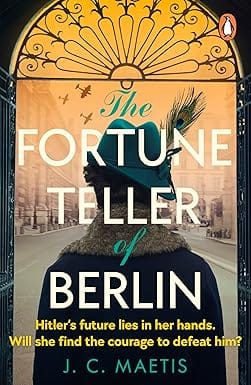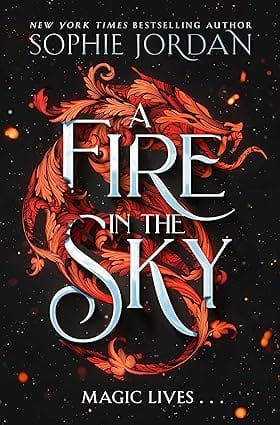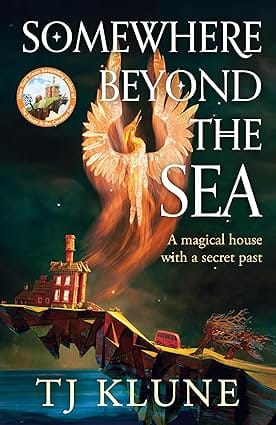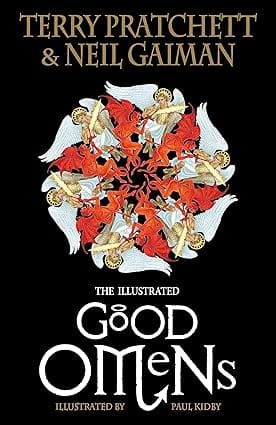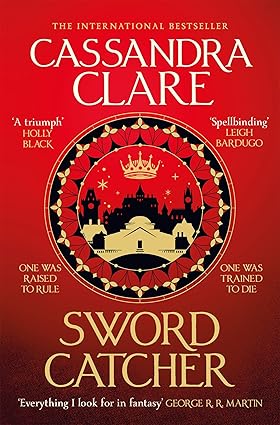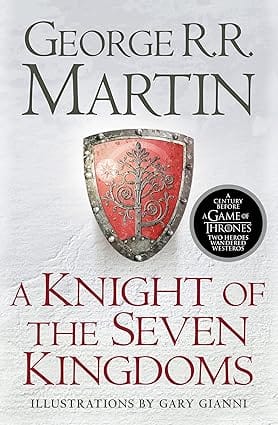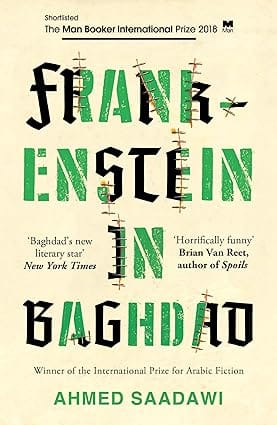-
Contemporary Fiction
- Contemporary Fiction
-
Children
- Children
-
Comics & Graphic Novels
- Comics & Graphic Novels
-
Non-Fiction
- Non-Fiction
-
Fiction
- Fiction
A beautiful Penguin Classics clothbound edition of Tolstoy's magnificent epic novel of love, conflict, fate and human life in all its imperfection and grandeur
At a glittering society party in St Petersburg in 1805, conversations are dominated by the prospect of war. Terror swiftly engulfs the country as Napoleon's army marches on Russia, and the lives of three young people are changed forever. The stories of quixotic Pierre, cynical Andrey and impetuous Natasha interweave with a huge cast, from aristocrats and peasants to soldiers and Napoleon himself. In War and Peace, Tolstoy entwines grand themes - conflict and love, birth and death, free will and faith - with unforgettable scenes of nineteenth-century Russia, to create a magnificent epic of human life in all its imperfection and grandeur.
Translated with an introduction and notes by Anthony Briggs, and with an afterword by Orlando Figes
Anthony Briggs's superb translation combines stirring, accessible prose with fidelity to Tolstoy's original, while Orlando Figes's afterword discusses the novel's vast scope and depiction of Russian identity. This edition also contains appendices, notes, a list of prominent characters and maps.
'A masterpiece ... This new translation is excellent' - Anthony Beevor
Review
War and Peace is like no other novel ... Tolstoy writes of both war and peace more marvellously than anyone else has done -- John Bayley - The Sunday Times
About the Author
Excerpt. © Reprinted by permission. All rights reserved.
These words were uttered in July 1805 by Anna Pavlovna Scherer, a distinguished lady of the court, and confidential maid-of-honour to the Empress Marya Fyodorovna. It was her greeting to Prince Vassily, a man high in rank and office, who was the first to arrive at her soirée. Anna Pavlovna had been coughing for the last few days; she had an attack of la grippe, as she said—grippe was then a new word only used by a few people. In the notes she had sent round in the morning by a footman in red livery, she had written to all indiscriminately:
“If you have nothing better to do, count (or prince), and if the prospect of spending an evening with a poor invalid is not too alarming to you, I shall be charmed to see you at my house between 7 and 10. Annette Scherer.”
“Heavens! what a violent outburst!” the prince responded, not in the least disconcerted at such a reception. He was wearing an embroidered court uniform, stockings and slippers, and had stars on his breast, and a bright smile on his flat face.
He spoke in that elaborately choice French, in which our forefathers not only spoke but thought, and with those slow, patronising intonations peculiar to a man of importance who has grown old in court society. He went up to Anna Pavlovna, kissed her hand, presenting her with a view of his perfumed, shining bald head, and complacently settled himself on the sofa.
“First of all, tell me how you are, dear friend. Relieve a friend’s anxiety,” he said, with no change of his voice and tone, in which indifference, and even irony, was perceptible through the veil of courtesy and sympathy.
“How can one be well when one is in moral suffering? How can one help being worried in these times, if one has any feeling?” said Anna Pavlovna. “You’ll spend the whole evening with me, I hope?”
“And the fête at the English ambassador’s? To-day is Wednesday. I must put in an appearance there,” said the prince. “My daughter is coming to fetch me and take me there.”
“I thought to-day’s fête had been put off. I confess that all these festivities and fireworks are beginning to pall.”
“If they had known that it was your wish, the fête would have been put off,” said the prince, from habit, like a wound-up clock, saying things he did not even wish to be believed.
“Don’t tease me. Well, what has been decided in regard to the Novosiltsov dispatch? You know everything.”
“What is there to tell?” said the prince in a tired, listless tone. “What has been decided? It has been decided that Bonaparte has burnt his ships, and I think that we are about to burn ours.”
Prince Vassily always spoke languidly, like an actor repeating his part in an old play. Anna Pavlovna Scherer, in spite of her forty years, was on the contrary brimming over with excitement and impulsiveness. To be enthusiastic had become her pose in society, and at times even when she had, indeed, no inclination to be so, she was enthusiastic so as not to disappoint the expectations of those who knew her. The affected smile which played continually about Anna Pavlovna’s face, out of keeping as it was with her faded looks, expressed a spoilt child’s continual consciousness of a charming failing of which she had neither the wish nor the power to correct herself, which, indeed, she saw no need to correct.
- Home
- Fiction
- Action & Adventure
- War And Peace
War And Peace
SIZE GUIDE
- ISBN: 9780241265543
- Author: Leo Tolstoy
- Publisher: Penguin Classics
- Pages: 1440
- Format: Hardback
Book Description
A beautiful Penguin Classics clothbound edition of Tolstoy's magnificent epic novel of love, conflict, fate and human life in all its imperfection and grandeur
At a glittering society party in St Petersburg in 1805, conversations are dominated by the prospect of war. Terror swiftly engulfs the country as Napoleon's army marches on Russia, and the lives of three young people are changed forever. The stories of quixotic Pierre, cynical Andrey and impetuous Natasha interweave with a huge cast, from aristocrats and peasants to soldiers and Napoleon himself. In War and Peace, Tolstoy entwines grand themes - conflict and love, birth and death, free will and faith - with unforgettable scenes of nineteenth-century Russia, to create a magnificent epic of human life in all its imperfection and grandeur.
Translated with an introduction and notes by Anthony Briggs, and with an afterword by Orlando Figes
Anthony Briggs's superb translation combines stirring, accessible prose with fidelity to Tolstoy's original, while Orlando Figes's afterword discusses the novel's vast scope and depiction of Russian identity. This edition also contains appendices, notes, a list of prominent characters and maps.
'A masterpiece ... This new translation is excellent' - Anthony Beevor
Review
War and Peace is like no other novel ... Tolstoy writes of both war and peace more marvellously than anyone else has done -- John Bayley - The Sunday Times
About the Author
Excerpt. © Reprinted by permission. All rights reserved.
These words were uttered in July 1805 by Anna Pavlovna Scherer, a distinguished lady of the court, and confidential maid-of-honour to the Empress Marya Fyodorovna. It was her greeting to Prince Vassily, a man high in rank and office, who was the first to arrive at her soirée. Anna Pavlovna had been coughing for the last few days; she had an attack of la grippe, as she said—grippe was then a new word only used by a few people. In the notes she had sent round in the morning by a footman in red livery, she had written to all indiscriminately:
“If you have nothing better to do, count (or prince), and if the prospect of spending an evening with a poor invalid is not too alarming to you, I shall be charmed to see you at my house between 7 and 10. Annette Scherer.”
“Heavens! what a violent outburst!” the prince responded, not in the least disconcerted at such a reception. He was wearing an embroidered court uniform, stockings and slippers, and had stars on his breast, and a bright smile on his flat face.
He spoke in that elaborately choice French, in which our forefathers not only spoke but thought, and with those slow, patronising intonations peculiar to a man of importance who has grown old in court society. He went up to Anna Pavlovna, kissed her hand, presenting her with a view of his perfumed, shining bald head, and complacently settled himself on the sofa.
“First of all, tell me how you are, dear friend. Relieve a friend’s anxiety,” he said, with no change of his voice and tone, in which indifference, and even irony, was perceptible through the veil of courtesy and sympathy.
“How can one be well when one is in moral suffering? How can one help being worried in these times, if one has any feeling?” said Anna Pavlovna. “You’ll spend the whole evening with me, I hope?”
“And the fête at the English ambassador’s? To-day is Wednesday. I must put in an appearance there,” said the prince. “My daughter is coming to fetch me and take me there.”
“I thought to-day’s fête had been put off. I confess that all these festivities and fireworks are beginning to pall.”
“If they had known that it was your wish, the fête would have been put off,” said the prince, from habit, like a wound-up clock, saying things he did not even wish to be believed.
“Don’t tease me. Well, what has been decided in regard to the Novosiltsov dispatch? You know everything.”
“What is there to tell?” said the prince in a tired, listless tone. “What has been decided? It has been decided that Bonaparte has burnt his ships, and I think that we are about to burn ours.”
Prince Vassily always spoke languidly, like an actor repeating his part in an old play. Anna Pavlovna Scherer, in spite of her forty years, was on the contrary brimming over with excitement and impulsiveness. To be enthusiastic had become her pose in society, and at times even when she had, indeed, no inclination to be so, she was enthusiastic so as not to disappoint the expectations of those who knew her. The affected smile which played continually about Anna Pavlovna’s face, out of keeping as it was with her faded looks, expressed a spoilt child’s continual consciousness of a charming failing of which she had neither the wish nor the power to correct herself, which, indeed, she saw no need to correct.
Related Books
User reviews
NEWSLETTER
Subscribe to get Email Updates!
Thanks for subscribing.
Your response has been recorded.

India's Iconic & Independent Book Store offering a vast selection of books across a variety of genres Since 1978.
"We Believe In The Power of Books" Our mission is to make books accessible to everyone, and to cultivate a culture of reading and learning. We strive to provide a wide range of books, from classic literature, sci-fi and fantasy, to graphic novels, biographies and self-help books, so that everyone can find something to read.
Whether you’re looking for your next great read, a gift for someone special, or just browsing, Midland is here to make your book-buying experience easy and enjoyable.
We are shipping pan India and across the world.
For Bulk Order / Corporate Gifting
 +91 9818282497 |
+91 9818282497 |  [email protected]
[email protected]
Click To Know More
INFORMATION
POLICIES
ACCOUNT
QUICK LINKS
ADDRESS
Shop No.20, Aurobindo Palace Market, Near Church, New Delhi

